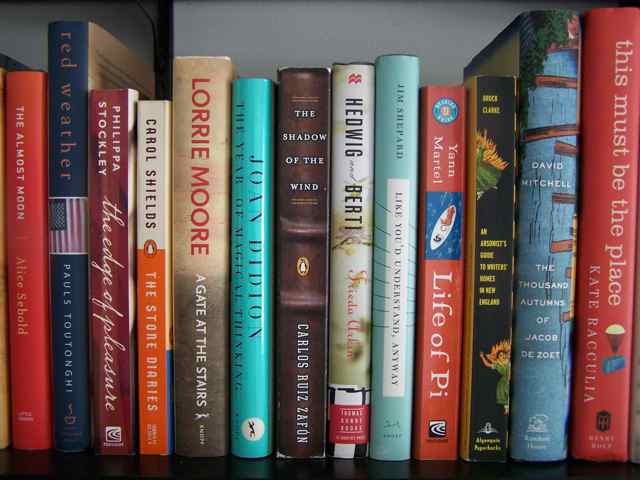 The title of Chez Moi, a novel by Agnes Desarthe, refers to a restaurant of sorts that the main character, Myriam, decides to open with no help, no business experience, and not much money. Forty-three years old and estranged from her family, her husband, and her only son Hugo for reasons she doesn’t reveal, Myriam pours her whole self and all her passion into cooking, a conduit for the love she can’t give her son. Her sole passion is to provide her new restaurant customers with the experience of home-cooked meals, but she doesn’t have the first clue about how to run a restaurant.
The title of Chez Moi, a novel by Agnes Desarthe, refers to a restaurant of sorts that the main character, Myriam, decides to open with no help, no business experience, and not much money. Forty-three years old and estranged from her family, her husband, and her only son Hugo for reasons she doesn’t reveal, Myriam pours her whole self and all her passion into cooking, a conduit for the love she can’t give her son. Her sole passion is to provide her new restaurant customers with the experience of home-cooked meals, but she doesn’t have the first clue about how to run a restaurant.
Chez Moi is translated from the French by Adriana Hunter, and was published in English in 2008. (The French title is Mangez-Moi, which didn’t get translated literally as “Eat Me” due to its connotations.) It has a je ne sais quoi (You knew I was going to say that, didn’t you?) quality about it that’s hard to describe, like A Novel Bookstore by Laurence Cossé. Chez Moi has what I imagine to be Parisian reserve; it doesn’t try too hard to win the reader over. On the other hand, Myriam is a very down-to-earth character, unpretentious; she describes herself as the “biggest f**ker-upper the world has ever brought forth.”
Readers have to accept Myriam as she presents herself: evasive, eccentric, lonely, depressed, gnawed by guilt, grieving lost love, and doomed to fail dramatically in her restaurant experiment if she doesn’t get help fast. She is in a fog much of the time when she’s not drinking herself into a stupor – avoiding thinking about her life beyond the need to make food for customers who may not even show up, given Myriam’s erratic restaurant hours, unconventional menu, sketchy table service, and nonexistent marketing skills.
There’s not much action in Chez Moi, and some of what does happen is surreal, as in a French movie with strangers walking in and out saying cryptic things. Myriam slowly reveals her past, musing philosophically whenever she’s not succumbing to despair, but she has a caustic wit that slices through her fatalism often enough to keep readers from getting too bogged down, and she also has that irrepressible love of food to keep her going.
To sum up the review, if you’re looking for a psychological novel set in Paris about an imperfect woman with a past; you enjoy sensual descriptions of cooking (including meat); and you aren’t expecting magical realism because you saw this book compared to Like Water for Chocolate in a review, then pick up Chez Moi and let me know what you think!
Read an interview of Agnes Desarthe here. [WARNING: Interview contains some spoilers.]
Other opinions of Chez Moi (mostly good):
Books on the Brain
Fleur Fisher in her world
Urban Domestic Diva
Disclosure: I read a public library copy of this book.
a
